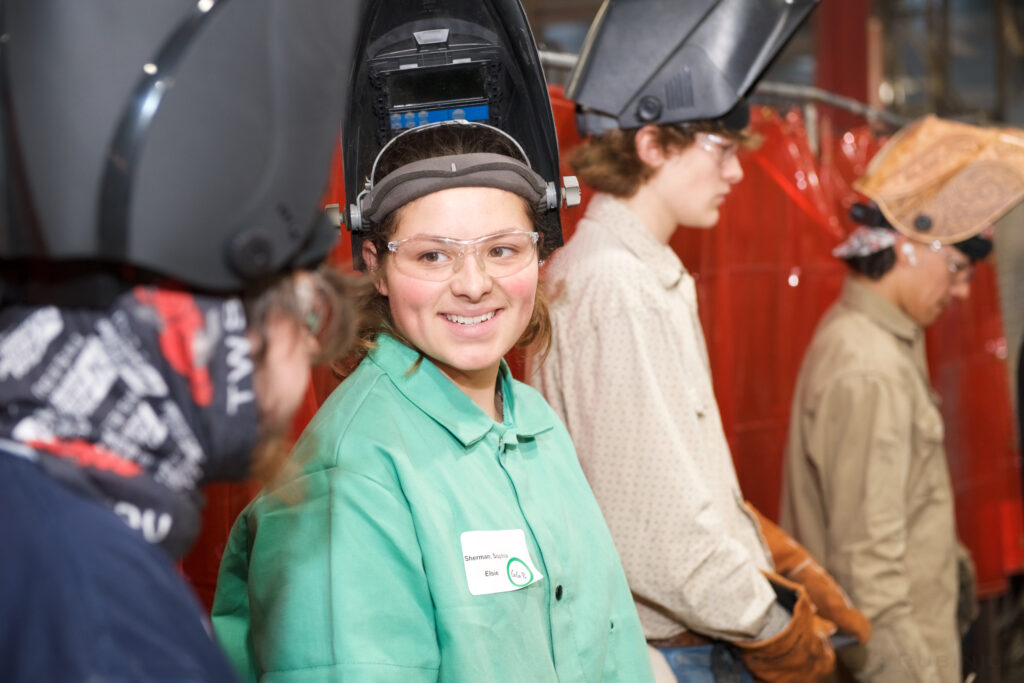Top Five Reasons Students Don’t Want to Attend College
Top Five Reasons Students Don't Want to Attend College
(And How to Help Them Overcome Their Challenges)
Each year, many recent graduates across the country decide not to seek higher education after high school. After all, lots of students have to overcome any number of obstacles before deciding to attend college. It's no surprise that some decide it's just not worth it.
But the truth is that choosing to enroll in a postsecondary education program can be one of the best ways to invest in your career and in your future.
Here are some of the most common reasons students decide not to go to college—and why they might want to reconsider.
1. No one in their family has gone to college
2. They think college will be too hard
3. They don't know how to choose the right college
4. They're worried they won't fit in
5. They're not sure that they can afford college
Talk about tough barriers to overcome—and some students have to deal with all of them! Don't let your students despair. There is hope!
With a little patience, a few helpful hints, and some research, students can find themselves on their way to college after all.
As the first person in their families to attend college, these students often do not know where to start, how to apply, what school to go to or how to finance their education. Out of sheer frustration, these students may just give up. Guidance counselors can give students hope, encouragement and help them decipher the application process. Additionally, career college admissions representatives will walk the student through the entire application process from start to end. At the very least, counselors and college representatives will be able to get the student started on the right track.
Getting through college can be easier with a few helpful hints. First, a student should know their study habits and learning styles. This will be key to their success in college. Some common bad study habits are: poor time management, poor study environment and cramming. Overcoming these habits will help students succeed in college. Most career colleges also offer free tutoring to their students or group study sessions.
Helping students get to college
As the first person in their families to attend college, first-generation college students often do not know where to start, how to apply, what school to go to, or how to finance their education. Out of sheer frustration, these students may just give up.
Guidance counselors can give students hope and encouragement, and they can also help them decipher the application process. Additionally, career college admissions representatives will walk the student through the entire application process from start to end. At the very least, counselors and college representatives will be able to get the student started on the right track.
Key points students should focus on when searching for a college are: program of study, location, cost, student services, and retention and graduation rates—just to name a few.
First, students should list their priorities and from there, they can start the research process. The internet can be a useful tool when researching schools, including our own database of member institutions.
After they have narrowed down their list, they should contact the schools for additional information, including a tour of the campus and a visit with an admissions representative.
Helping students succeed in college
Getting through college can be easier with a few of these helpful hints. First, a student should know their study habits and learning styles. This will be key to their success in college.
Some common bad study habits are poor time management, a hectic study environment, and relying on cramming. Overcoming these habits—getting a handle on your schedule, creating a good study environment, and prioritizing working ahead—will help students succeed in college. Plus, most career colleges also offer free tutoring and other resources for their students to help them do well.
Are your students afraid they won't fit in at college? Students making that transition from high school, where they knew the same people for years, to a different school with people they don't know can be scary. Diverse groups of people can be found at career colleges and—on top of that—many schools offer social activities where students can meet new people.
Students should also be encouraged to get involved in academic activities, such as student government or the college newspaper, where they will find smaller groups to bond with while they improve their skill sets.
Helping students pay for college
Another major issue for lots of students is figuring out how to pay for it. This can prevent students from going to school or even from even thinking about it.
It's important to remember that there are tons of resources out there to help, and that a large percentage of students in college receive some type of financial aid. Financial aid can include grants, loans, work-study opportunities, and scholarships.
Because grants, work-study programs, and scholarships do not have to be repaid, these are some of the best sources of financial aid. And while federal loans have to be paid back, they typically have a low interest rate and can be repaid over a long period of time.
This can all be confusing or overwhelming to students, but the college's financial aid office will be able to help students sort through the different types of financial aid.
Let’s Talk Veterinary Careers with High Desert Medical College
Let’s Talk Veterinary Careers with High Desert Medical College: SEASON 5, EPISODE 4 MORE FROM OUR EPISODE ON veterinary careerswith high desert medical college HDMC is here for you as you walk down your new career path. High Desert Medical College (HDMC) is a…
Let’s Talk Picking the Right Trade School with Universal Technical Institute
Let’s Talk Picking the Right Trade School with Universal Technical Institute: SEASON 5, EPISODE 3 MORE FROM OUR EPISODE ON picking the right career school with universal technical institute Find Your Perfect Training Program At UTI, our mission is to prepare technicians for the careers…
Let’s Talk Women in Welding with Tulsa Welding School
Let’s Talk Women in Welding with Tulsa Welding School: SEASON 5, EPISODE 2 MORE FROM OUR EPISODE ON Women in welding WITH tulsa welding School Contact TWS — Houston, TX Click Here For A Virtual Tour! Location 243A Greens Rd. Houston, TX 77060 Contact tulsa…
Let’s Talk Aviation with Spartan College of Aeronautics and Technology
Let’s Talk Aviation with Spartan College of Aeronautics and Technology: SEASON 5, EPISODE 1 MORE FROM OUR EPISODE ON aviation CAREERS WITH SPARTAN COLLEGE OF AERONaUTICS AND TECHNOLOGY Contact Spartan College — Tulsa Main Campus Click Here For A Virtual Tour! Location 8820 East Pine…
Does your career college enrollment strategy include high school students? It should.
For decades, career college recruitment specialists have focused primarily on enrolling older adults: those with time in the workforce, with families, with less desire and fewer resources to commit to a traditional on-campus, four-year degree. Those adult learners aren’t going anywhere, thanks to employment market…
Leave a Reply Cancel reply
- - ADVERTISEMENT - -
Categories
- Alumni Series (13)
- Automotive (57)
- Aviation (15)
- Business (14)
- Business & Arts (18)
- Career College Expositions (8)
- Career Development (96)
- CCC Blog (1)
- CCC Podcast (9)
- College Resource (90)
- College Showcase – Lincoln Tech (6)
- College Showcase – New Jersey (8)
- College Showcase – Pennco Tech (1)
- College Showcase – Universal Technical Institute (2)
- Continuing Education (155)
- Cosmetology (3)
- Counselor Resources (108)
- Criminal Justice (3)
- Dental Assistant (2)
- Education (110)
- Financial Literacy (17)
- Health Sciences (51)
- Heritage Series (3)
- High School Recruitment Series (4)
- Housing Series (10)
- HVAC (8)
- Imagine America Scholarships (12)
- Information Technology (17)
- Massage Therapy (5)
- Mechanical Sciences (109)
- Medical Assistant (12)
- Millennial Student Series (4)
- News (11)
- Nursing (22)
- Online education (13)
- Pandemic Proof Series (4)
- Personal Finance (17)
- Podcast (91)
- Research (11)
- Road Map Series (2)
- Scholarships (12)
- Social Media Series (4)
- Strata Tech (3)
- Student Success (29)
- Study Tips (3)
- Time Managment (1)
- Top 10 (10)
- Trucking (2)
- Uncategorized (14)
- Universal Technical Institute (19)
- Veteran Affairs (8)
- Welding (24)
- Women in Skilled Trades (3)
Tags
- - ADVERTISEMENT - -







